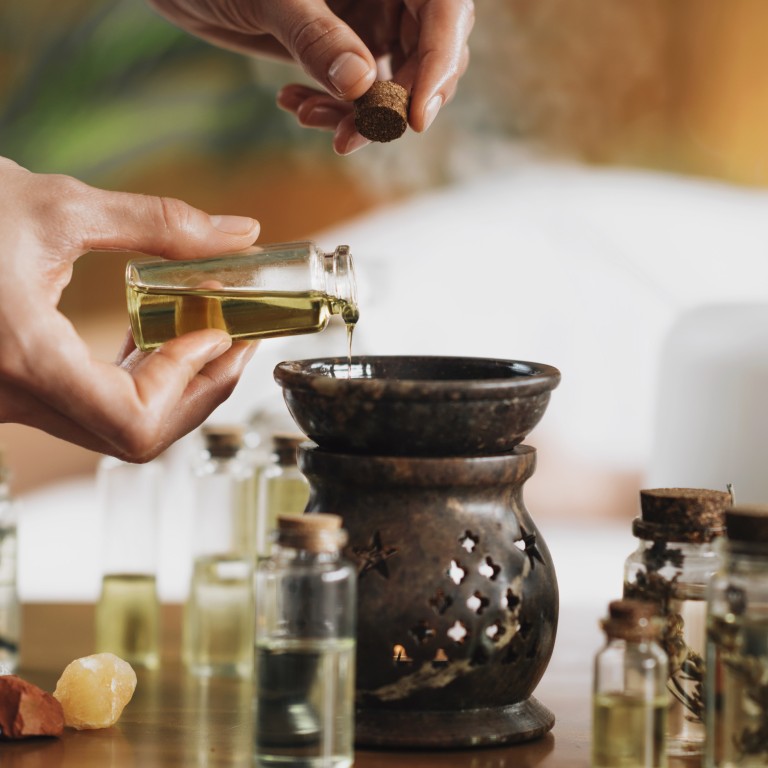
Explainer | How aromatherapy can benefit your mind and body – and how essential oils help with cancer patients’ recovery
- Scent plays a powerful role in our lives, and essential oils can help lift our spirits, calm indigestion, overcome constipation and relieve pain
- A study of aromatherapy’s use on women undergoing cancer treatment showed relief from pain and improvements in their energy levels, appetite and mood
“Healing begins with an aromatic bath and daily massage,” said Hippocrates. Even 2,400 years ago, the “father of medicine” understood the power of aromatics in restoring one’s health.
Yet many people don’t realise the powerful role scent plays in our lives – a role so significant that incorporating aromatherapy into our routines can have notable benefits for our mental, physical and holistic health.
Aromatherapy’s history
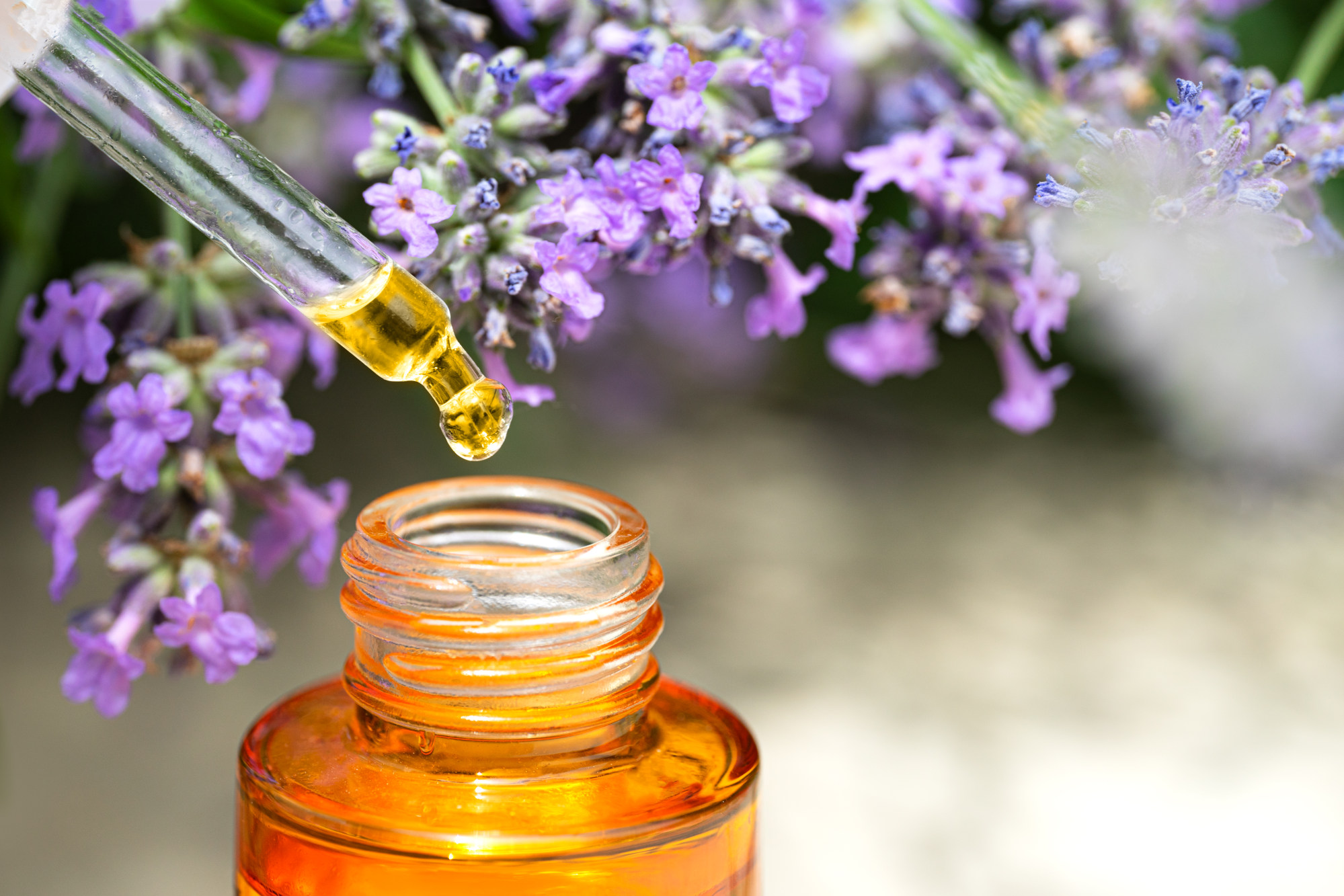
The method of distilling oils eventually spread to Europe and, by the 1500s, oils such as cedarwood, rose and myrrh could be found in medieval European pharmacies.
Most essential oils are distilled, but they can also be cold-pressed or extracted through other methods.
Aromatherapy nothing to be sniffed at, say proponents
Aromatherapy – the therapeutic use of essential oils – is considered a holistic health treatment that can help strengthen the mind and body. It is increasingly being used to help offset side effects of treatments in cancer patients. The oils are dispersed through candles or diffusers and inhaled, or applied topically through massage or the use of skincare products.
How scents affect our well-being
“Aromatherapy [is] so powerful because aroma directly impacts your limbic system, which is your primal emotional centre,” says Anita Cheung, a certified aromatherapist and founder of health and wellness centre iLiving, in Hong Kong’s Central district.
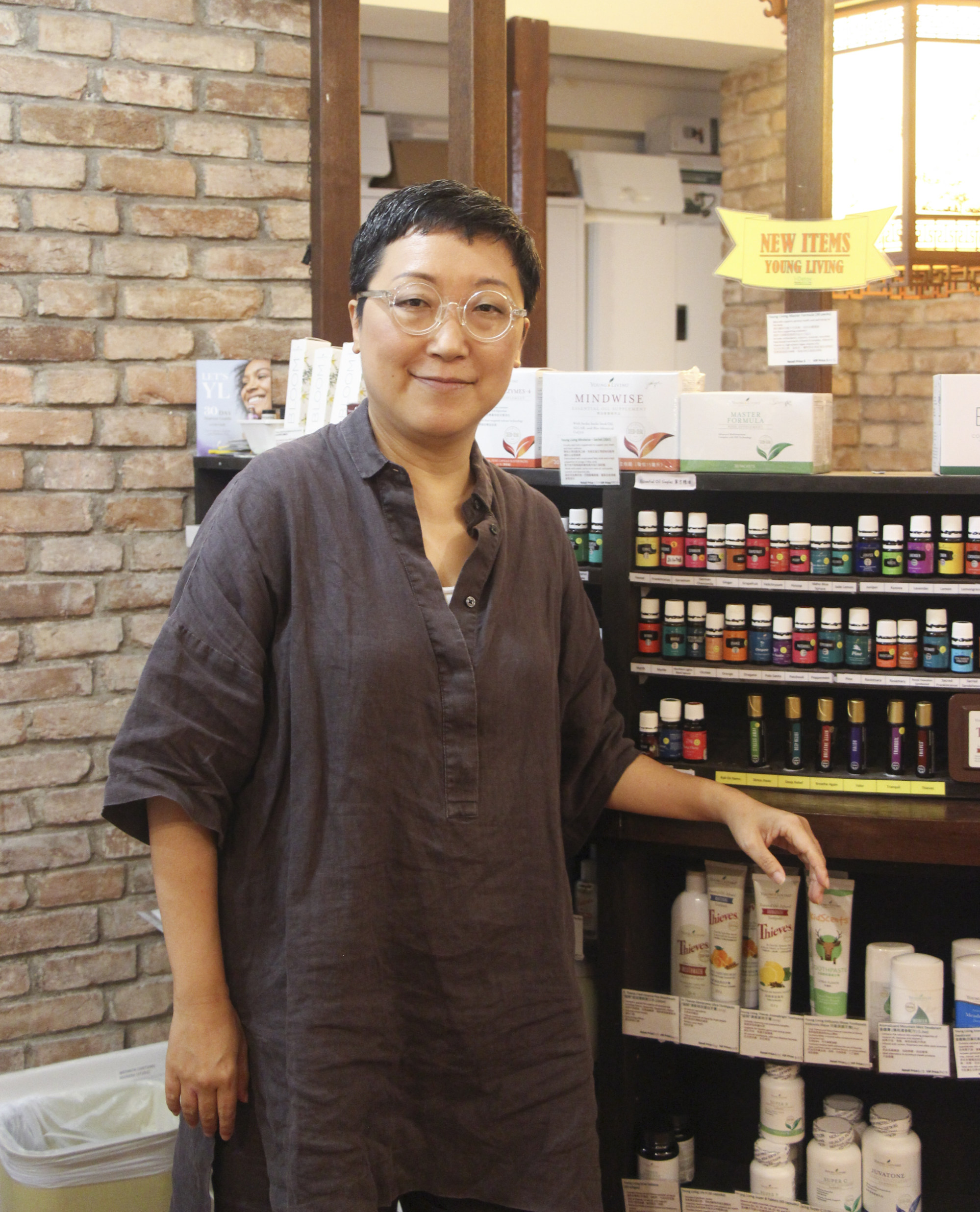
There’s no right way to apply essential oils; different people might respond better to different methods, Cheung says. Scents have varying properties and benefits – physical or emotional – so it’s important to do your research before trying them.
For example, citrus essential oils can lift spirits with their bright, zesty aroma, but they also amplify sunlight and can cause you to burn quicker, so you shouldn’t apply them before sunbathing, Cheung says. Ginger can improve digestion, wintergreen can relieve pain and clove oil has natural anaesthetic properties.
We tried new treatment for anxiety, allergies, chronic pain
Sandalwood, which Cheung has loved since she was a child, has a grounding feel. “[Woodsy scents] bring you back to your centre. If you think about the plant, the centre is the tree trunk,” she says.
Their benefits for mind and body
Cheung says essential oils provide a wide variety of benefits to her clients: some develop younger-looking skin and see notable hair growth, others have used oils to soothe period pain and minimise stretch marks. Many of them apply the essential oils topically, through lotions or gels.
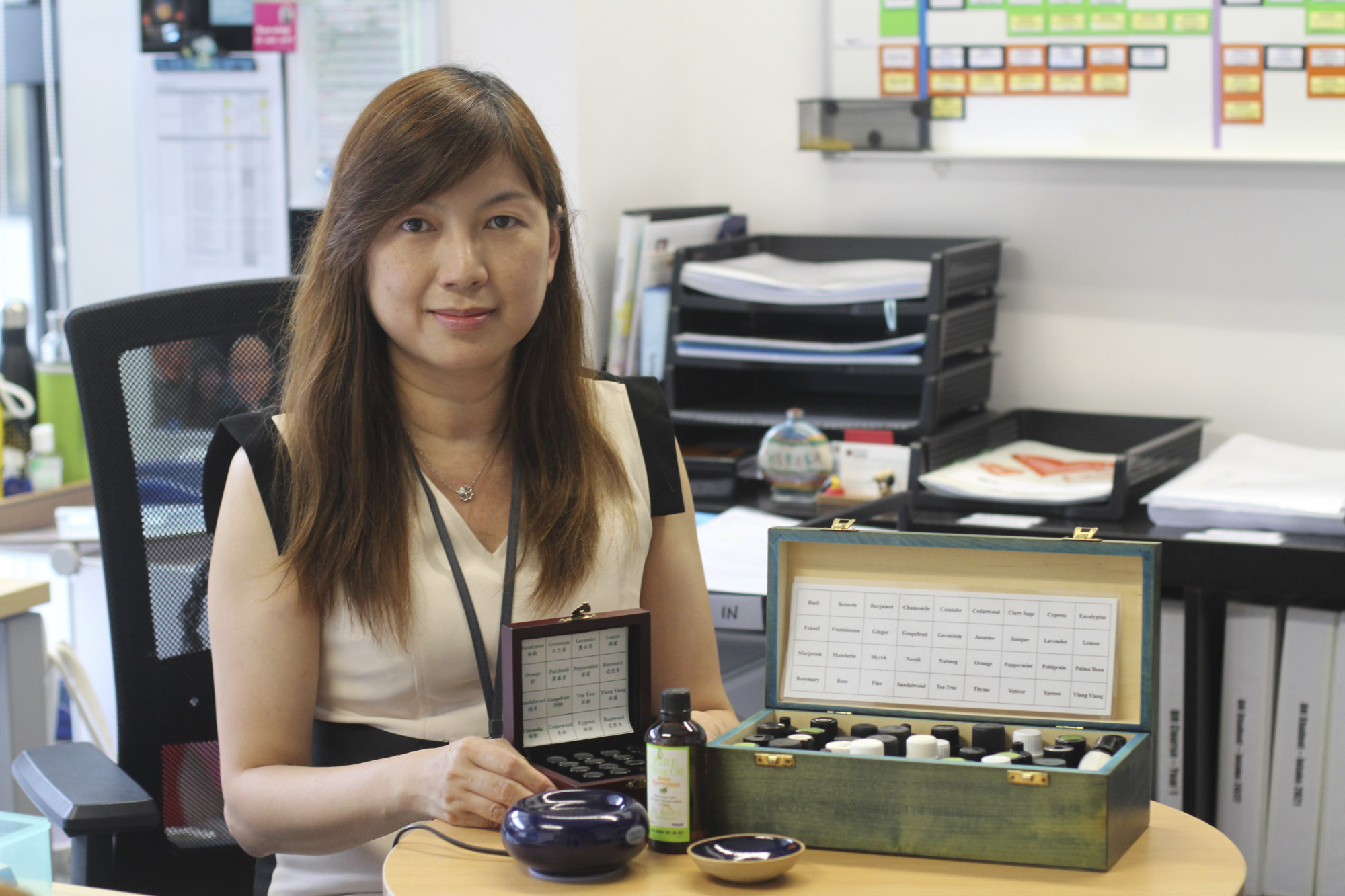
“My purpose is not aimed at curing something, but just [increasing] the patient’s comfort,” she says, noting that the majority of her patients have incurable illnesses.
While aromatherapy can have a variety of positive physiological effects, neither Cheung nor Lai make the claim that it should be used in place of modern medicine and treatments. Rather, aromatherapy can be a beneficial supplement.
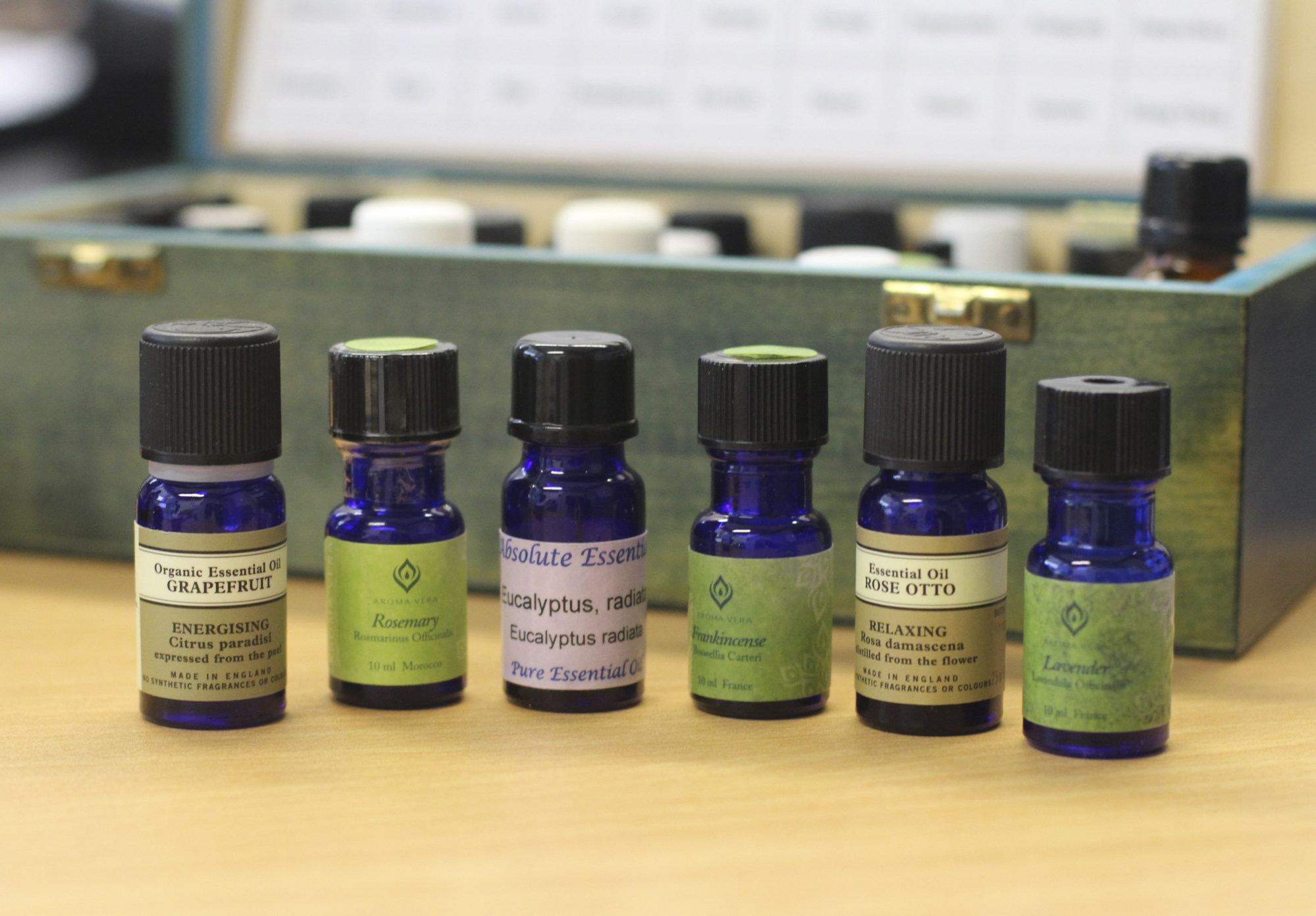
Aromatherapy’s use in cancer recovery
With her patients, Lai mostly applies essential oils through massage. She works closely with a patient’s doctor to ensure that aromatherapy is a suitable treatment and to identify symptoms the patient is dealing with.
Nausea is a common side effect of chemotherapy and other cancer treatments. Lai also sees many patients dealing with constipation, including lung cancer patients who might lack abdominal strength.
Why constipation happens and what to do about it
In a 2012 study, Lai and other doctors found that those who received aromatherapy massage had a higher number of bowel movements on average than those who received a regular massage or no massage.
A study published in the Journal of Clinical Nursing has found a number of other positive effects of aromatherapy on female cancer patients, including improved energy level, appetite and mood, as well as reduced pain, muscular tension and numbness.
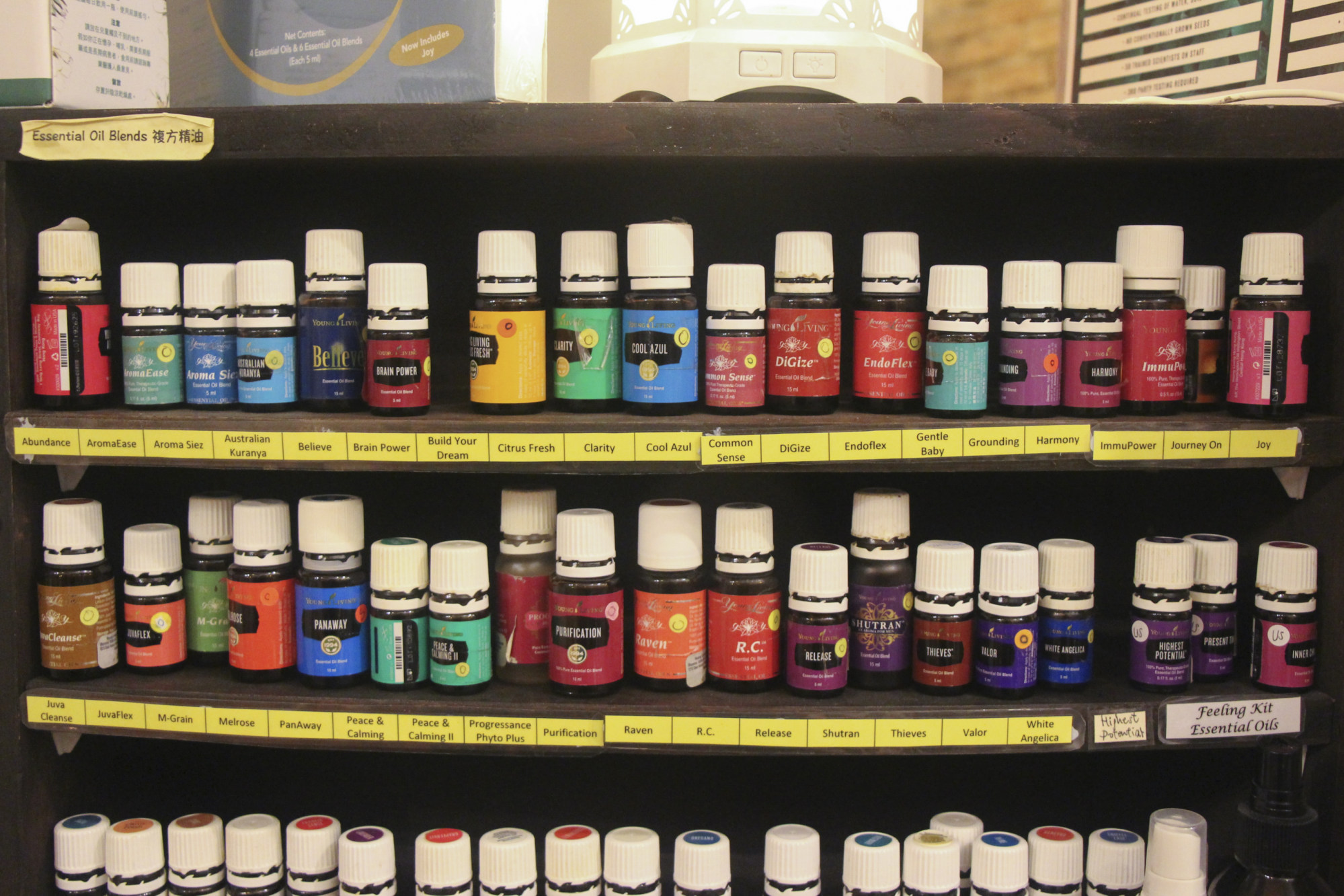
Safeguards for patients
Lai says it’s important to choose oils that won’t cause an adverse reaction.
The frequency of application and the amount of essential oils used also matters – Lai cautions against using too much oil directly on the skin and says that a balanced ratio of essential oil to carrier oil for massage purposes is important.
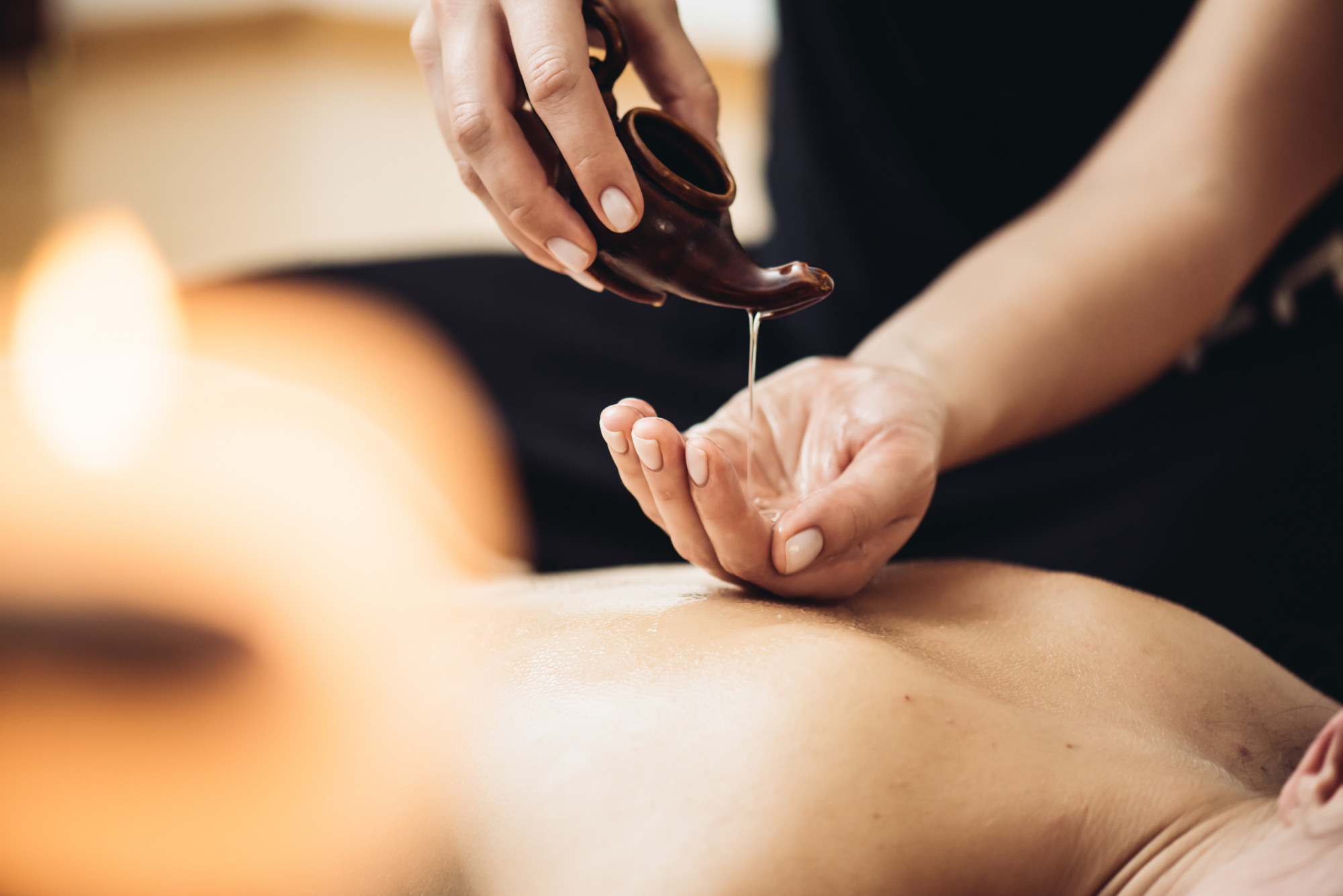
In her practice, Lai will sometimes mix oils to counteract specific effects, and during massage she’ll avoid certain sensitive areas. She’s very conscious of how the essential oils are used, and studies a patient’s medical history.
“For our patients, all of them have advanced cancer, so I never recommend [using essential oils] by themselves. All of them should go through a very systematic and holistic assessment to make sure that they have no contraindications, and the medical officer in charge [is] aware of what they are using,” she says.
Lai will either perform the aromatherapy treatment herself or solicit a trained professional to do so. In some cases, such as patients dealing with oedema (swelling caused by excessive fluid, usually after radiation therapy) who can benefit from daily massage, she will teach family members how to apply the oils.
Lai recommends seeking a doctor’s approval before using essential oils if you are pregnant or seriously ill.
What the label on that bottle of essential oil isn’t telling you
Scents can bolster mental health
While aromatherapy provides physical health benefits, essential oils can also have significant emotional and mental health benefits. For people dealing with traumatic events or long-term illnesses, essential oils can help people bolster their mental fortitude, Cheung says.
“Physical and emotional health is about being adaptable,” she says. Because essential oils have that direct path to the hippocampus and amygdala, they can affect your emotional state and help boost resilience and tolerance when dealing with difficulties, she says. A whiff of a pleasant fragrance can help uplift your mood, so don’t avoid them, Cheung adds.
“Aromatics are everywhere in our life,” she says, so go explore which scents are the right ones for you.

